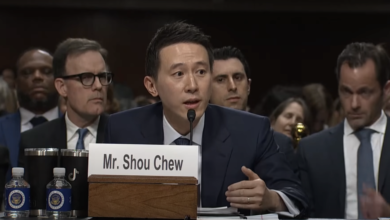As part of his first major speech on foreign policy since becoming president, Joe Biden announced yesterday a halt to U.S. support for “offensive operations” in Yemen, including “relevant arm[s] sales” to Saudi Arabia. Since 2015 during the Obama-Biden administration, the United States has been supporting, enabling and directly participating in the Saudi war of aggression against Yemen. The United Nations says the conflict has created the world’s most severe humanitarian crisis. Direct U.S. involvement in the fighting increased dramatically while Trump held office.
The Ansar Allah movement, often referred to as the Houthi movement or the Houthis, control most of Northern Yemen including the capital city and are enemies of the Saudi regime. They were declared a terrorist organization in the final days of the Trump presidency in a cynical move to hamper the delivery of humanitarian aid (a measure reversed by Secretary of State Blinken). The Houthis’ main domestic opponents, who are loyal to a political leader named Abdrabbuh Mansur Hadi, were rescued from the verge of total military defeat by a Saudi-led coalition of reactionary governments backed by the United States. They have waged a brutal war of attrition, attempting to starve the population in Houthi controlled areas into submission while carrying out regular bombing raids targeting civilians.
Without a doubt, persistent advocacy by Yemenis and anti-war organizations worldwide brought the brutality and genocidal nature of the Saudi war into mainstream consciousness. A political climate has been created where the Biden administration felt compelled to take this welcome initial step to reduce direct involvement in the war, which had become an embarrassing reminder that the U.S. government’s rhetoric about human rights is completely hollow. But looking closely at the details of Biden’s speech, how much of a change can we really expect?
The anti-war movement and even a few Democrats in congress have called for a full end to U.S. support for Saudi Arabia in this devastating war. Biden stopped short on this front, pledging, “We’re going to continue to support and help Saudi Arabia defend its sovereignty and its territorial integrity from missile attacks, [unmanned aerial vehicle] strikes, and other threats from Iranian-supplied forces in multiple countries.” This opens the door for a mere shuffling of the deck whereby future U.S. arms sales to the Saudi regime are re-classified as “defensive” in nature. It is absurd for Biden to paint Saudi Arabia as a victim under siege by Iran rather than as the main belligerent force leading a long, genocidal war against the people of Yemen.
Even experts who do not come from a progressive or anti-imperialist background have concluded that allegations of Iranian support for the Houthis are overblown. For instance, Dr. Elisabeth Kendall, nonresident senior fellow with the Brent Scowcroft Center’s Middle East Peace and Security Initiative and senior research fellow in Arabic and Islamic studies at Pembroke College at Oxford University, argued in late 2017 “with or without Iran’s involvement, the underlying structure of the conflict would likely be the same.”
The Guardian reports that U.S. forces will continue operations against al-Qaeda cells based in Yemen. These covert operations have often been justified as an attempt to curb the group known as Al-Qaeda in the Arabian Peninsula (AQAP). However, AQAP considers the Houthis their biggest enemy, effectively putting them on the Saudi coalition’s side — the same side for which the United States has intervened in the war. The AQAP zones of control have spread, not contracted, because of the chaos of the war, much like Islamic State (ISIS) control grew in other parts of the world.
In his Thursday speech, Biden did not broach the topic of further sanctions relief, which is desperately needed to even begin to ease the humanitarian crisis in Yemen.
Biden’s indication that the U.S. will return to the ongoing United Nations-led effort to seek a diplomatic solution to the conflict is positive and should be followed closely. But the anti-war movement and all people of conscience need to continue to come out strongly in solidarity with the people of Yemen and demand full sanctions relief and a definitive end to U.S. support for Saudi Arabia’s ability to make war in the region.
Updated to reflect Secretary of State Blinken’s announcement on Friday night that the terrorist designation targeting the Houthis was being revoked






